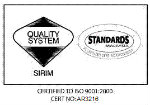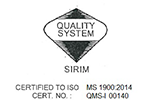Living Well, Ageing Well: The Challenges For Healthy Ageing
Healthy ageing is defined by preserving of vitality, preventing of chronic diseases, fostering social involvement and meaningful relationships. Aging is a natural process that brings both joys and hurdles. Muslims are encouraged to do good and enjoy a quality life until the end of their lives. Islam prioritises a consistent and balanced approach in the life from conception to death. In that matter, al-Quran highlights various life phases, characterising unique human creation, and describes old age as a stage of weakness and infirmity and greying of hair that comes after strength subsequently.
Allah is the one who created you from weakness, then made after weakness strength, then made after strength weakness and white hair. He creates what He wills, and He is the Knowing, the Competent. (ar-Rum (30): 54)
Getting through old age without appropriate services and facilities is definitely not an easy thing. Imagine how vulnerable people aged 60 and above want to live independently if facilities are not available for them. As Malaysia is heading towards an ageing nation, the issues of facilities, transport systems, and the provision of health services that are friendly to the elderly need to be emphasised accordingly. The situation becomes more difficult for those who are single and have to move alone to go anywhere. This is one of the realities that will happen in less than six years as 15 percent of Malaysia’s population is predicted to be over 65 years old.
By 2030, 1 in 6 people in the world will be 60 years or older. At that time, the proportion of the population aged 60 and over is expected to increase from 1 billion in 2020 to 1.4 billion. The global population of people aged 60 and over will double by 2050 (2.1 billion). The number of people aged 80 and over is expected to triple between 2020 and 2050, rising to 426 million. While an ageing population can mean an increase in knowledge and experience, it can also create new challenges for the country. As people get older, they may have more health problems. The healthcare system must therefore be prepared to meet the needs of an ageing population.
According to statistic issued by the Statistics Department (DOSM), the proportion of the country’s population aged 65 and more is predicted to reach 20% by 2056, making us a “super-aged nation”. According to a different DOSM analysis, the average life expectancy at birth in 2021 would be 75.6 years, as opposed to 63.6 years fifty years earlier. These two elements combine to create an ageing population and new challenges emerge. This shift brings with it a unique set of economic and health considerations, calling for collective attention and action.
Furthermore, Malaysia’s ageing population has become a major concern due to the increased prevalence of non-communicable diseases (NCDs). As non-communicable diseases (NCDs) are chronic disorders that develop gradually and are preventable, they provide considerable barriers to healthy ageing. Hence, it is imperative to comprehend the relationship between healthy ageing and the burden of NCDs for improving the well-being and quality of life of ageing populations.
The lifestyle modifications can play a crucial role in healthy aging and the prevention of NCDs. An adherence to healthy lifestyle elements, including physical activity, healthy diet, moderate alcohol consumption, and not smoking, was associated with a longer life expectancy. The importance of nutritional consideration needs to be emphasise in promoting healthy aging and preventing NCDs for healthy aging and the reduction of age-related chronic diseases. Thus, tailored dietary interventions must be addressed with the specific nutritional requirements of the ageing population in the context of NCDs prevention.
The elderly and young people should prioritise of their health from the beginning to avoid dependency on others and lead a more prosperous life in their golden age. The dependency on the family for financial resources and daily care makes them more likely to expect help from the government in addition to medical contributions and basic needs in the old age. Therefore, promoting healthcare is vital in preventing older people from being affected by the risk of disease. Besides, it becomes a burden to families and the government as they have to cover the high medical expenses.
Moreover, some strategies should be focused on to reduce the risk of non-communicable diseases (NCDs) and promote healthy ageing among the elderly population. These strategies including nutrient-rich diets, healthy lifestyle choices, preventive healthcare, and public health policies.
Vitamin and mineral deficiencies in older adults have been linked to an increased risk of non-communicable diseases such as heart disease, diabetes, fatigue, and cognitive decline. Additionally, concentrating on a nutrient-dense diet is crucial for reducing the risk of non-communicable diseases (NCDs) during this phase. As the population ages, routine health checks, early diagnosis, and management of NCDs risk factors become more crucial in preventing the illness onset.
Improving older people’s well-being and quality of life requires tackling the burden of non-communicable diseases and encouraging healthy ageing. Hence, by using a comprehensive strategy that includes social support, lifestyle modifications, preventative health care, and policy reform, we can lessen NCDs’ burden on individuals and society and foster healthy ageing. As a result, investing in healthy ageing efforts and initiatives is vital to creating a healthy and resilient ageing population in the future.
Furthermore, it is imperative to carry out research in gerontology, geriatrics, and gerontechnology disciplines. These areas of study could unlock new possibilities for healthy aging and drive an innovation in addressing the multidimensional challenges and opportunities of the ageing population. Research based on development, commercialization, and innovation needs to be developed in our country as a preparation for facing an ageing country and supporting healthy, active and productive ageing. Generally, addressing the challenges facing an aging society requires concerted efforts from governments, healthcare providers, researchers, community and individuals. Together, we can create a future where aging is not a burden, but a blessing.




